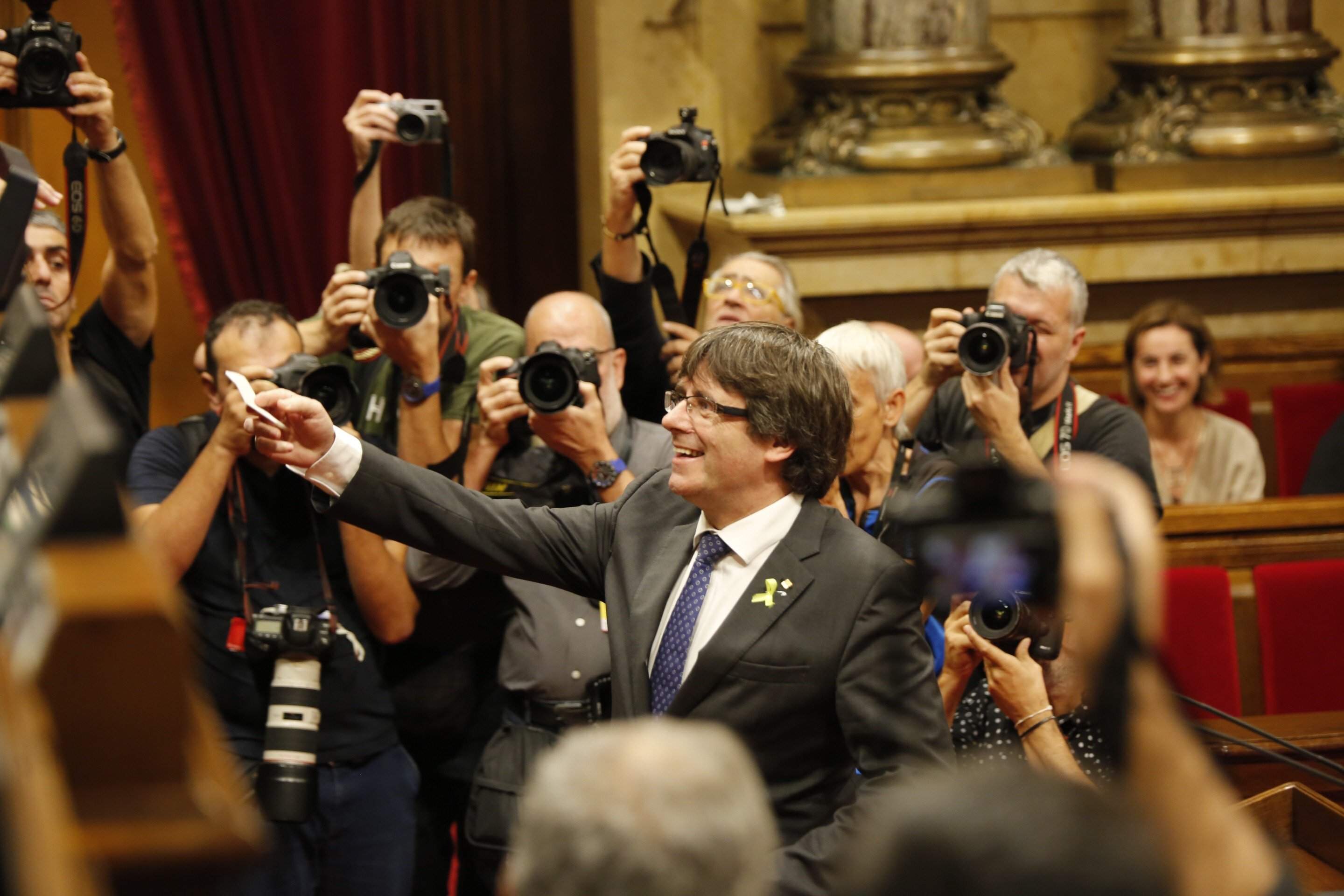Catalan Parliament lawyers have released a report rejecting the possibility for Carles Puigdemont to be invested president at a distance or through a representative. They made it clear that the investiture has to be with the "direct and personal" participation of the candidate.
The Parliament's lawyers conclude that the basic rules of parliamentary procedure require that not only do the protagonists in the investiture debate attend, but also that there is no media between them or person substituting for them.
In the report, ordered by speaker Carme Forcadell at the request of PSC and Ciutadans, the lawyers were asked a number of questions relating to the quorum for the constitutive session and the possibilities of investing Carles Puigdemont as president while he is exiled in Brussels. In any case, however, the final decision will have to be taken by the new Parliament Board to be formed on Wednesday.
As for Puigdemont being invested from abroad, through a video link or proxy, the lawyers believe that, as well as "the grammatical interpretation of the rules and laws presupposing the presidence of the candidate before the chamber", the nature of the investiture debate is "dialogue" between the candidate and other deputies.
They believe that "respect for the basic rules of parliamentary procedure" require "not only the attendance of the protagonists in the debate", but also "the fulfilment of that which characterises parliamentary debate". That would be: "orality, direct contradiction and the guarantee of the principle of immediacy so that all participants can see, hear and understand in person the evolution of the debate".
Against prisoners having proxy votes
The lawyers believe that "deputies have the right to attend all the Parliament's sessions and the duty to attend debate and votes".
Moreover, the lawyers comment on the possibility of the deputies-elect in prison or in exile being able to nominate proxies to vote on their behalf. According to the report, the Parliament's rules only allow for delegating votes in the case of "maternity or paternity or in the event of hospitalisation, serious illness or prolonged incapacity".
As such, it believes that a "restrictive" reading of the rule is necessary and that incapacity "cannot be extrapolated or interpreted as applying to situations that do not refer to the physical or psychological capacity of the deputy as a justification for their non-attendance with the possibility of delegating their vote".
This statement by the lawyers contradicts the criteria of Supreme Court judge Pablo Llarena, who called on "prolonged legal incapacity" to leave it up to the Parliament's Board whether to allow the imprisoned deputies (Oriol Junqueras, Joaquim Forn and Jordi Sànchez) to delegate their votes. The lawyers note that there is separation of powers and that Llarena's judgement cannot be considered an "order", that it falls to the chamber to decide.
The report is signed by all the chamber's lawyers.

